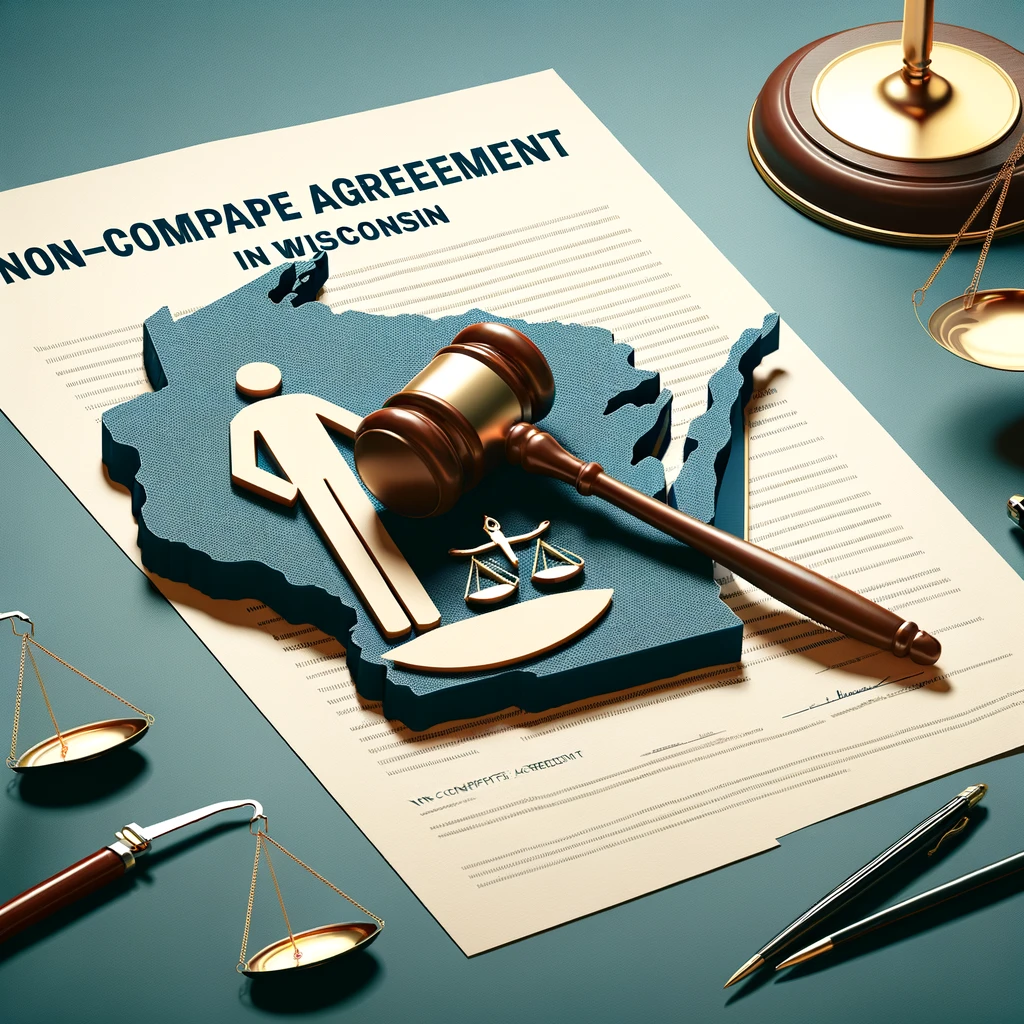Navigating Wisconsin Non-Compete Law: A Comprehensive Guide
In the complex legal landscape of employment agreements, non-compete clauses hold a significant place, especially in Wisconsin. These clauses can profoundly affect both businesses and employees, shaping how companies protect their interests and how workers navigate their career moves. This guide delves into the specifics of Wisconsin's non-compete law, offering insights into its legal framework, implications, and recent developments. By leveraging authoritative resources and ensuring a comprehensive understanding, we aim to provide a valuable resource for employers, employees, and legal professionals alike.
Introduction to Non-Compete Agreements
Non-compete agreements are contracts that restrict an employee's ability to engage in a competing business or work for a competitor within a certain period and geographical area after leaving a company. These agreements aim to protect a business's confidential information and investment in its employees. In Wisconsin, like in many other states, the enforceability of these agreements is subject to specific legal criteria to balance the interests of employers and the right to work for employees.

Understanding Wisconsin's Legal Framework
Wisconsin's approach to non-compete agreements is governed by state statutes and judicial decisions. The cornerstone of Wisconsin's stance on non-compete clauses can be found in Section 103.465 of the Wisconsin Statutes. This section outlines the restrictions on restrictive covenants in employment, emphasizing that such agreements must be reasonable to be enforceable. For an in-depth understanding, referring to the Wisconsin Legislature's website provides the statutory language and interpretations.
Key Requirements for Enforceability:
Reasonableness: A non-compete must be reasonable in duration, geographical area, and the scope of restricted activities.
Protectable Interest: Employers must demonstrate a protectable interest justifying the non-compete, such as trade secrets or substantial relationships with customers.
Consideration: The employee must receive something of value in exchange for agreeing to the non-compete, such as employment, promotion, or other benefits.
Recent Legal Developments
Wisconsin courts have actively interpreted and applied these principles in various cases, shaping the current understanding and application of non-compete laws. For legal professionals and scholars, reviewing recent case law, such as decisions from the Wisconsin Supreme Court, offers critical insights into evolving legal standards. Academic articles and legal analyses, accessible through platforms like Google Scholar, provide further discussion on the implications of these legal developments.
Best Practices for Employers
For employers in Wisconsin, drafting enforceable non-compete agreements requires a careful balance of protecting business interests without overly restricting an employee's right to work. Here are some best practices:
Clearly define the protectable interests the agreement aims to safeguard.
Ensure the scope, duration, and geographical limitations are reasonable and necessary.
Provide adequate consideration for the non-compete agreement.
Consult with legal counsel to tailor agreements to comply with current Wisconsin law and court interpretations.
Navigating Non-Compete Agreements for Employees
Employees on the other side must be aware of their rights and the implications of signing a non-compete agreement. Before signing, consider the following:
Understand the terms and how they might affect future employment opportunities.
Negotiate terms if possible, especially if the initial terms seem overly restrictive.
Seek legal advice to understand the potential consequences of the agreement.

Create & Review Your Contracts 10x Quality and Ease
Lawyer-level AI handles all your contract needs, with real lawyers providing safeguarding support

Conclusion
Wisconsin's non-compete law embodies the delicate balance between an employer's need to protect its business and an employee's right to work. As legal standards continue to evolve through legislative changes and court decisions, staying informed is crucial for all parties involved in non-compete agreements. Whether you're an employer drafting an agreement or an employee considering signing one, consulting with knowledgeable legal counsel is advisable to navigate the complexities of Wisconsin's non-compete law effectively.
References
Wisconsin Legislature. (n.d.). Section 103.465 - Restrictive Covenants in Employment. Retrieved from https://docs.legis.wisconsin.gov/statutes/statutes/103/II/465
Google Scholar. (n.d.). Wisconsin Non-Compete Law Case Law. Retrieved from https://scholar.google.com/

